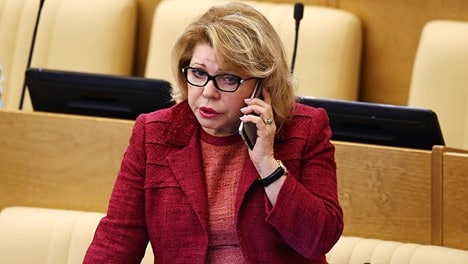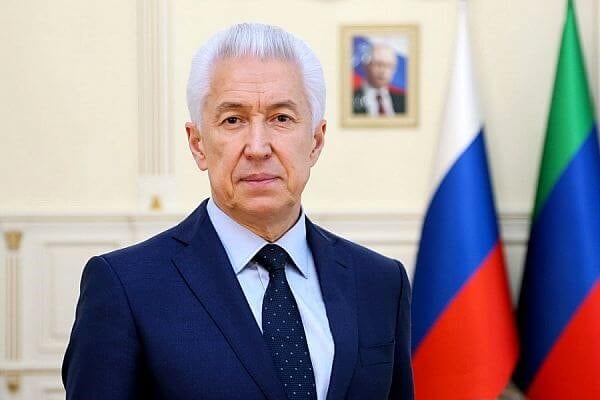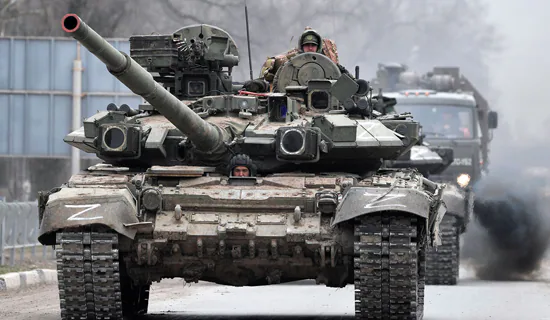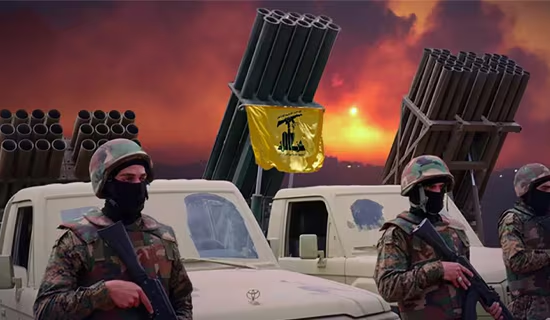On January 19,2022 the Communist Party of the Russian Federation (CPRFR)Duma faction submitted an appeal to Vladimir Putin to extend diplomatic recognition to the breakaway Luhansk People's Republic [LPR] and the Donetsk People's Republic [DPR]. The Communist proposal was promptly endorsed by Vladimir Zhirinovsky's "Liberal Democrats: and Fair Russia the two largest factions of the systemic "opposition" in the Duma.
The proposal was originally seen as nationalism-signaling by the trio of parties and DOA in terms of gaining political traction as it is United Russia, the party that is completely loyal to Putin, which calls the shots in the legislature. The division of power between the executive and the legislative branches in Russia also makes foreign policy and defense issues the exclusive preserve of the executive. Two Russian senators reacted negatively to the Communist proposal for precisely this reason. The first deputy head of the international committee of the Federation Council Vladimir Dzhabarov explained:
"The issue of recognition or non-recognition is the prerogative of those responsible for the foreign policy of the Russian Federation." Dzhabarov spelled out that in the Russian Federation the president of Russia is responsible for foreign policy, and the Foreign Ministry is the instrument of this policy. Therefore, "Any pressure from any party is unacceptable.".
Andrey Klimov, head of the Federation Council Commission for the Protection of State Sovereignty reminded the Communists that the Kremlin's official position is quite familiar and such issues are regulated by laws, and this is “not the subject of political PR.”[1] But then, surprisingly, Duma Speaker Vyacheslav Volodin acknowledged that the issue of the two republics was important and merited a discussion between the Duma faction leaders on its consideration by the body.[2] He added "One thing is obvious. One should seek out solutions for ensuring the safety of our citizens and compatriots in the DPR and LPR"[3] It would take a major leap of faith to assume that Volodin was acting on his own volition.
After a meeting between the Duma factions it was decided that the State Duma Council will consider the Communist Party's appeal faction to Vladimir Putin decided to consider the resolution in February.[4]
The following report examines whether the Communists were acting as a stalking horse for Putin and if the move has official sanction, what are the advantages of recognizing the breakaway republics for Russia and for Putin.

Road sign: left for Luhansk right for Donetsk (Source: Hvyla.net)
Theories Accounting For The Communist Party's Appeal To Putin
The Director at the Progressive Policy Foundation, Oleg Bondarenko claimed that the Communists were merely being consistent: "The CPRF, the Communists have always supported Donbass. I don't know any other party that has sent more humanitarian aid there than they did. They engaged in humanitarian aid from day one. From the very begging [of the conflict] the party's deputies visited the region en masse. It's quite natural that this initiative was proposed by the CPRF. So, it is quite logical continuation of the consistent communists' policy on the protection of the Russian population of Donbass."

Oleg Bondarenko (Source: Eadaily.com)
In contrast, the Director at the Center for Political Analysis, Pavel Danilin definitely believes that the proposal serves Russian diplomacy: ""This will facilitate the creation of a good political tool to be used in case of emergency, i.e. as a means of pressure. Given the situation that has developed recently due to the US actions, this step is quite useful. Although the initiative was proposed not by the UR, but by the CPRF, it's still an appeal made by the party in the parliament. It's a tool in the hands of Russian diplomacy. It's very important that it [the CPRF appeal] exists, it was noted, it became known abroad and in Kiev, in particular."[5]
Danilin believes that it was useful for Russian policy makers that the CPRF launch the initiative rather than United Russia, because it allowed for deniability and did not seem to pose a challenge to Vladimir Putin and Foreign Minister Sergey Lavrov:
"It's an instrument. It may or may not be used. If it would have been proposed by UR [United Russia], it would be no longer be an instrument, but a threat," said Pavel Danilin.
"Because United Russia is oriented, on the one hand, towards the president, and, on the other hand, towards Lavrov, whose name was first on its list (of candidates for the 2021 Duma elections - author). In this sense, it cannot act as a political party. This is why one cannot speak of the UR party's initiative."
Political scientist Alexei Makarkin believes that the proposal of the Communist Party of the Russian Federation could have been coordinated with the Kremlin - although this does not mean at all that it will be implemented. According to Mr. Makarkin, the initiative of the Communists can be used in a dialogue with the United States: “This is convenient, because it does not oblige the Russian authorities to anything, especially since there is no hurry - the discussion will take place only in February.”[6]
The head of the CIS (Commonwealth of Independent States) Affairs Committee, Leonid Kalashnikov from the Communist Party straddled the two explanations. On the one hand, he claimed the initiative for his party "We promised this to voters during the [Duma Elections] campaign, we talk about it every month when we help deliver goods to Donbass." Kalshnikov, however, conceded that given the seriousness of the issue it was possible that the party's leader Gennady Zyuganov could have consulted with someone.[7]
Advantages For Russia Of The Recognition Gambit
"It looks like the decision to recognize the DPR and LPR has been made," political consultant Abbas Gallyamov wrote in his Telegram channel.
In the political analyst's opinion, the Kremlin has essentially no options now other than to recognize the DPR and LPR.
"The West ignored the ultimatum, so we have to respond somehow. There aren't a lot of options: either to try to capture Kiev immediately, or limit ourselves to Donbass and Luhansk. We choose the second option.
"It looks like a response, and there is no reason to introduce sanctions, after all Russia wouldn't attack Ukraine [under this scenario]," concluded Galliamov.[8]

Abbas Gallyamov (Source: Business-gazeta.ru)
Elena Panina a former UR Duma deputy acknowledged the uncertainties of such a measure but saw its advantages: "On the other hand, such a decision can also put an end to the talk about the 'Russian invasion' and 'seizure of Ukraine', which the Western media are full of today and which the State Department and the Pentagon repeat on a daily basis. The move could also mean that Russia has no other goals than to protect the Russian-speaking population of Donbass, which has been subjected to genocide by the Kiev regime since 2014.
"It is also worth recalling that it will soon be eight years since the inhabitants of the Donetsk and Luhansk regions of Ukraine declared their sovereignty and the creation of the Donetsk and Luhansk People's Republics at the general vote on May 11, 2014.
"This happened in conditions when, after the coup d'etat and the overthrow of President Viktor Yanukovych, the development of the post-Soviet Ukrainian statehood was actually interrupted. De facto, a new state arose that has no political connection with the Ukrainian SSR [Soviet Socialist Republic] and goes back to the state formation created by fascist accomplices from the OUN (banned in the Russian Federation) in the summer of 1941 on the Soviet lands occupied by the Wehrmacht.
"Eight years of existence of the DPR and LPR in the conditions of military aggression and economic blockade by Kiev is a sufficient period for the formation of a new statehood, even by Western standards.
"Most of the NATO and EU countries recognized the independence of Kosovo, proclaimed in February 2008, that is, eight and a half years after the actual separation of the autonomous province from Yugoslavia. Turkey, which is a member of NATO, also after eight years of negotiations between the Turkish Cypriots and the Greek authorities of Cyprus, recognized the self-proclamation of the Turkish Republic of Northern Cyprus.
"Thus, if the DPR and LPR are recognized by Russia, this decision will not be some kind of unique precedent in international relations. There is no doubt that the West will rush to explain that "this is different." But such an argument is unlikely to have a logical basis.[9]

Ella Panina (Source: Gazeta.ru)
Russian political scientist Boris Oreshkin speculated that Vladimir Putin may even be striving for a situation where he "will be compelled" to recognize the breakaway territories.
"Why is it beneficial for Putin? Because there are insufficient political resources for a big real war. The costs are too high. These are the coffins that will return to Russia; much more influential and intensified international sanctions... worst of all, it’s a pointless exercise. Because even if some piece of Ukraine can be recaptured, the local population will not meet [Russian tanks] with flowers.”
Putin will use all the options for a hybrid war, in particular, by applying pressure via the DPR and LPR, Oreshkin believes.
"Putin's strategy is to scare Europe, as happened in Soviet times, in the expectation that ... Europe will chicken out and agree to the conditions imposed on it from Moscow. But now it doesn’t work."
At the same time, Oreshkin believes that the West cannot formally regard the recognition of the Donbass republics as an “invasion”, that is, an open attack on Ukraine. This will turn them into "black holes", as has already happened with Abkhazia and South Ossetia [that broke away from Georgia]. Simultaneously, the recognition will seriously undermine Ukraine's President Vlodomyr Zelensky, as it will allow his opponents to claim that he "lost everything."
Oreshkin is certain that Putin will not annex these territories to Russia.[10]
If most observers saw recognition as a way to dampen down the crisis the leader the Union of Volunteers of Donbass, Alexander Borodai, believed that it would lead to war something that was already inevitable.
"Recognition of the republics means the inevitability of war right now. I'm not claiming that this is a bad thing. I have always stated that actually the situation, to my regret, will be resolved according to this scenario," warned Borodai.[11]
Warding Off Criticism
By posing the issue as defense of Russian compatriots in the breakaway regions, the Russian authorities have an issue that will appeal to public opinion, and will reverse the narrative by claiming that Russians rather than Ukraine are the victims.
This may be necessary, because cracks have begun to show. Some commentators in the Russian press have begun to express doubts about the handling of the crisis. Moskovsky Komosomlets' senior commentator Mikhail Rostovsky who is on good terms with Russia's leaders. Rostovsky complained that "The anticipation of this 'real business' has indeed long been excruciating. It's impossible to be constantly in a state of permanent uncertainty and suspense".
"Russia now has troubles finding allies in Europe. Lavrov made a number of other curious statements during the press conference, 'The US and NATO obstruct the EU's attempts to achieve autonomy in security issues.' I agree, they do. But we ourselves are helping the US and NATO in this endeavor, isn't that the case? Weren't we too quick to 'lose our patience?'
"At the beginning of last fall, there was not even talk of any make or break confrontation with the West over NATO enlargement. But unexpectedly everything on our side changed most radically. Now the question is, "either we win or we lose." I believe, such a decisive and not fully understood reversal of the plot (i.e. why did our patience run out now and not 6 years ago?) further facilitates our isolation in Europe... I personally am not sure that we do indeed hold strong trumps capable of achieving Moscow's strategic objectives."[12]
Dmitry Drize expressed his misgivings about the crisis: "Let's start with the main thing. No sooner had the country started the working week after another vacation, the Russian stock market and national currency, the ruble spiraled down as if holding hands. It's not that investors became horrified, but they clearly were puzzled by the prospects of a new Cuban Missile Crisis.
"Such a scenario was described by Russian Deputy Foreign Minister, Sergei Ryabkov, provided the West won't listen to Russia as a result of the talks. In the latter case, Moscow may decide on some steps, including the deployment of fleets.
Where may these fleets go, you ask? We'll decide, maybe to the Latin American coast. Why not? By the way, neither Cuba nor Venezuela, where in theory the Russian battleships and destroyers should arrive, are aware of such a scenario."[13]
If at first the systemic opposition carried the ball, United Russia is now taking over, with a call upon Putin to provide military supplies and take measures to assist the LPR and the DPR. Vladimir Vasilyev, the head of the UR Duma faction made the following comment on the Rossiya 24 tv channel:
"We consulted on this issue and reached an understanding that we cannot leave people to the mercy of the Kiev regime. In this regard, we appeal to our country's leadership to provide assistance to the Lugansk and Donetsk republics in the form of supplying military products necessary for deterring aggression, as well as taking all requisite measures to ensure the citizens' safety.

Vladimir Vasilyev (Source: Gipoteza.org)
The upper house was onboard as well, and the Vice Speaker of the Federation Council, Andrei Turchak justified the need for supplying arms supplies to the DPR and LPR:
"The number of shellings in the Luhansk and Donetsk regions has increased many times, civilians are dying, and at this time, Western curators are pushing the Ukrainian junta to a direct invasion of the Donbass, arming the national battalions, for whom the heroes are [Stefan] Bandera and Hitler, and the swastika is their respected sign."[14]
[1] Lenta.ru, January 19, 2022/
[2] Mk.ru, January 22, 2022.
[3] Tsargrad.tv, January 21, 2022.
[4] Ria.ru, January 24, 2022.
[5] Mk.ru, January 22, 2022.
[6] Kommersant.ru, January 24, 2022.
[7] Kommersant.ru, January 24, 2022.
[8] Vnnews.ru, January 22, 2022.
[9] Rosstrat.ru, January 24, 2022.
[10] Rosbalt.ru, January 24, 2022.
[11] Tsargrad.tv, January 21, 2022.
[12] Mk.ru, January 14, 2022.
[13] Kommersant.ru, January 14, 2022.
[14] News.mail.ru, January 26, 2022.




